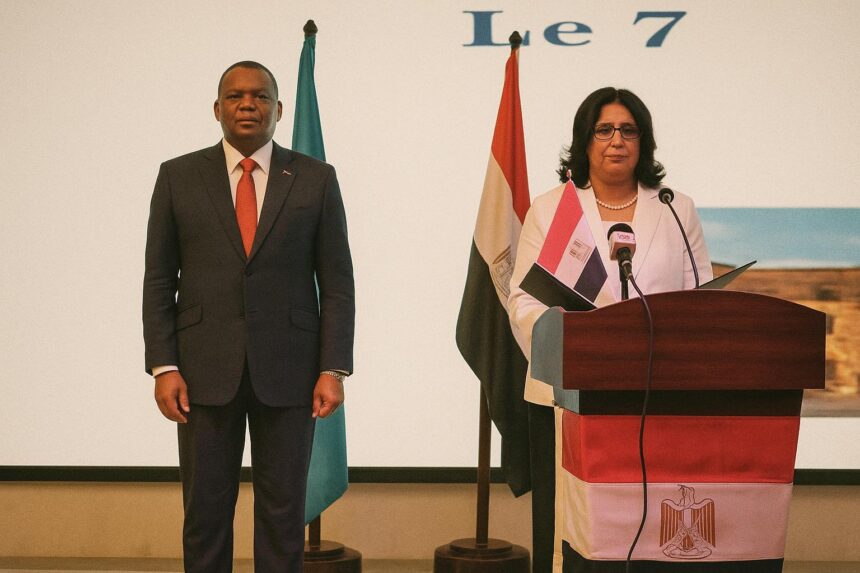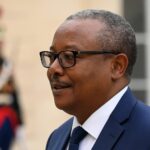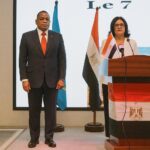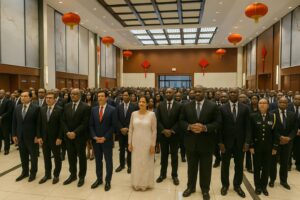An Evergreen Partnership in Central and North Africa
Few bilateral relationships on the African continent can claim the same historical resonance as that between the Republic of Congo and the Arab Republic of Egypt. Initiated during the era of President Gamal Abdel Nasser and President Fulbert Youlou in the early 1960s, the connection has weathered ideological shifts, economic realignments and the changing geometry of global power. Yet the symbolic exchange of toasts on 18 July, marking Egypt’s seventy-third National Day, was not merely ceremonial. It reminded diplomats gathered in Brazzaville that the two states continue to mine an extensive common agenda that has moved beyond anticolonial solidarity toward pragmatic collaboration in security, energy and sustainable development.
- An Evergreen Partnership in Central and North Africa
- Security Training as Cornerstone of Trust
- Economic Diversification and the Green Pivot
- Hydrocarbon Realities Meet Nuclear Ambition
- Climate Diplomacy and Loss-and-Damage Finance
- Soft Power: From Archaeology to Afro-Jazz
- Regional Outlook and the Pragmatics of Mediation
- Quiet Resilience of a Multi-Layered Alliance
Security Training as Cornerstone of Trust
Ambassador Imane Yakout’s emphasis on defence cooperation was consonant with a discreet but robust tradition of military training that dates back to the 1980s. Congolese officers have long rotated through Egyptian military academies, a practice accelerated after the creation of the Egyptian Agency of Partnership for Development in 2014. According to figures quoted by regional security analysts (Institute for Security Studies, 2023), over two hundred Congolese cadres have received tactical or strategic instruction in Egypt during the last decade. The logic is straightforward: Congo gains cost-effective capacity building, while Egypt reinforces its continental credentials as a provider of security public goods, a role it already performs through substantial troop contributions to UN peacekeeping missions.
Economic Diversification and the Green Pivot
Cairo’s Vision 2030, an ambitious framework for economic diversification, provides a conceptual hinge for new commercial overtures to Brazzaville. Egyptian engineering conglomerates, encouraged by export-credit guarantees from Cairo, have expressed interest in public-private partnerships along the Congo River corridor, notably in river-port rehabilitation and solar mini-grids. The prospect dovetails with Congo’s own National Development Plan 2022-2026, which prioritises logistics infrastructure and a measured energy transition. A recent scoping mission by the African Export-Import Bank estimated that bilateral trade, currently hovering around USD 80 million annually, could plausibly double by 2028 if transport bottlenecks are addressed (Afreximbank, 2024).
Hydrocarbon Realities Meet Nuclear Ambition
Both states remain significant hydrocarbon producers, yet each is experimenting with alternative energy narratives. For Egypt, the El-Dabaa nuclear power plant under construction with Russian technology is the flagship. Although Brazzaville is unlikely to emulate a nuclear venture in the near term, the Congolese cabinet has discreetly explored avenues for technical exchanges on radiation safety and grid integration, according to senior officials at the Ministry of Hydrocarbons. Shared learning in complex project management could inform Congo’s forthcoming gas-to-power plants along the Atlantic coast, reinforcing what one Brazzaville adviser called “South-South benchmarking without ideological baggage”.
Climate Diplomacy and Loss-and-Damage Finance
Egypt’s stewardship of COP27 in Sharm el-Sheikh placed it at the centre of the debate over loss-and-damage financing for climate-vulnerable states. The Congo Basin, second only to the Amazon in carbon-sequestration capacity, is a natural beneficiary of the fund outlined in the Sharm framework. Congolese negotiators privately acknowledge that Egypt’s deft chairmanship helped elevate Central African forestry concerns onto the global stage, ensuring that questions of biodiversity conservation were linked to concrete financial instruments. As Congo prepares to host the Three Basin Summit later this year, Cairo’s experience in forging consensus among heterogeneous negotiating blocs is likely to serve as a valuable precedent.
Soft Power: From Archaeology to Afro-Jazz
Beyond the metrics of trade and troop numbers, the relationship is animated by a softer cultural current. The Egyptian Opera House has hosted Congolese rumba ensembles during the annual Afro-Jazz Festival, while the Marien Ngouabi University maintains an academic exchange with Cairo University’s Institute of African Research. Such programmes, modest in budget, cement people-to-people ties and generate what foreign policy scholars term reputational capital. They also offer a reminder that diplomacy derives longevity from cultural familiarity as much as from geopolitical calculus.
Regional Outlook and the Pragmatics of Mediation
Both Brazzaville and Cairo view mediation as an instrument of strategic relevance. Congo’s President Denis Sassou Nguesso holds a long-standing mandate from the African Union on the Libyan dossier, whereas Egypt continues to broker cease-fire initiatives in Gaza. Although operating in different theatres, the two capitals share doctrinal similarities that privilege sovereignty and incremental negotiation over maximalist posturing. This alignment could yield convergent strategies within continental fora such as the AU Peace and Security Council, where coordinated messaging tends to amplify diplomatic impact.
Quiet Resilience of a Multi-Layered Alliance
Taken together, the security, economic and cultural strands of the Congo-Egypt dialogue reveal a partnership that adapts to shifting geopolitical winds without discarding its foundational principles. The absence of public friction, coupled with steady but unspectacular material gains, has endowed the relationship with a quality of quiet resilience often missing from more spectacular but volatile alliances. As Brazzaville pursues fiscal consolidation and Cairo refines its green transformation, their shared disposition toward pragmatic, sovereignty-conscious cooperation is likely to remain a constant on the continental stage.





















